Christine Valters Paintner's Blog, page 70
March 6, 2020
A Different Kind of Fast: Part Three – Embrace Trust
 * This is the third part of a seven-part series we will publish weekly during this Lenten season.
* This is the third part of a seven-part series we will publish weekly during this Lenten season.
My word for this year is surplus. It is a word which has been working on me for some time now. A couple of summers ago I was pondering how to make the work I love so much sustainable both energetically and financially. Even with work that arises out of passion, we bump up against our limits of what we can give and how much renewal we need.
As a contemplative and a strong introvert, my needs for quiet times are high and I am grateful for our seasonal rhythms which allow for extended times of restoration. But there is, of course, always the anxiety around money and being able to earn enough to live.
Then last summer my pondering shifted to consider something even more generous than merely sustainable: surplus. I am not just thinking about how to have enough energy and resources to meet the needs of this flourishing community, but to have more than enough, a surplus, an excess of reserves.
My word is inspired by a quote I read a couple of years ago by Jungian analyst Robert Johnson in his book? The Fisher King and the Handless Maiden: "Nothing happens, which is enough to frighten any modern person.? But that kind of nothingness is the accumulation or storing of healing energy. . . to have a store of energy accumulated is to have power in back of one.? We live with our psychic energy in modern times much as we do with our money—mortgaged into the next decade.? Most modern people are exhausted nearly all the time and never catch up to an equilibrium of energy, let alone have a store of energy behind them. With no energy in store, one cannot meet any new opportunity."? Those words have stayed with me ever since I read them, because I have recognized the contemplative call in them.
What makes this path so counter-cultural is the active resistance against living a life of busyness and exhaustion, of not making that a badge of pride, of having an abundance of time to ponder and live life more slowly and attentively. How many of us feel our energy is mortgaged into the next decade? How many of us can never catch up with the rest we so desperately need much less feel like we have a "store of energy" behind us? I think many of us live in the tension of "what is enough?" Enough time, enough money, enough love.
We are surrounded by messages of scarcity and so our anxiety gets fueled. I think one of the most profound practices to resist anxiety, to fast from its hold on me, is the practice of Sabbath. Walter Brueggeman, in his wonderful book Sabbath as Resistance, writes that the practice of Sabbath emerges from the Exodus story, where the Israelites are freed from the relentless labor and productivity of the Pharaoh-system in which the people are enslaved and full of the anxiety that deprivation brings.
Yahweh enters in and liberates them from this exhaustion, commanding that they take rest each week. We essentially live in this self-made, insatiable Pharaoh-system again. So weary are we, so burdened by consumer debt, working long hours with very little time off. So many take pride in wearing the badge of "busy." So many are stretched thin to the very edges of their resources.
When we practice Sabbath, we are making a visible statement that our lives are not defined by this perpetual anxiety. It requires a community to support us. At the heart of this relationship is a God who celebrates the gift of rest. Brueggemann says we are so beholden to "accomplishing and achieving and possessing" that we refuse the gift given to us.
The Israelites, and we ourselves, must leave Egypt and our enslavement to be able to dance and sing in freedom. Dance is a celebratory act which is not "productive" but restorative. When we don't allow ourselves the gift of Sabbath rest, we deny the foundational joy that is our birthright as children of God. To dance in freedom is a prophetic act.
We are called to regularly cease, to trust the world will continue on without us, and to know this embodiment of grace and gift as a revolutionary act. Nothing else needs to be done.
In the coming days, as part of my Lenten practice, I will fast from anxiety and the endless torrent of thoughts which rise up in my mind to paralyze me with fear of the future. I will reclaim the Sabbath, making a commitment to rest and to lay aside work and worry. I will give myself the gift of things that are truly restorative—some time spent in silence, a beautiful meal shared with a friend, a long walk in a beautiful place. Sabbath-keeping is an embodiment of our faith that there is something deeper at work in the world than the machinations of the power structure. It is a way for us to embody this profound trust and enter into the radical abundance at the heart of things.
With great and growing love,
Christine
Christine Valters Paintner, PhD, REACE
Photo © Christine Valters Paintner
March 3, 2020
Featured Poet: Jan Richardson
Last spring we launched a series with poets whose work we love and want to feature and will continue it moving forward.
Our next poet is Jan Richardson whose recent work is centered on grief, hope, and fierce, enduring love. Read her poetry and discover more about the connections she makes between poetry and the sacred. Lister to her read "Blessing for the Brokenhearted" below.
https://abbeyofthearts.com/wp-content/uploads/2020/03/Blessing-for-the-Brokenhearted.mp3
The Magdalene's Blessing
You hardly imagined
standing here,
everything you ever loved
suddenly returned to you
looking you in the eye
and calling your name.
And now
you do not know
how to abide this ache
in the center
of your chest
where a door
slams shut
and swings open
at the same time,
turning on the hinge
of your aching
and hopeful heart.
I tell you
this is not a banishment
from the garden.
This is an invitation,
a choice,
a threshold,
a gate.
This is your life
calling to you
from a place
you could never
have dreamed
but now that you
have glimpsed its edge
you cannot imagine
choosing any other way.
So let the tears come
as anointing,
as consecration,
and then
let them go.
Let this blessing
gather itself around you.
Let it give you
what you will need
for this journey.
You will not remember
the words—
they do not matter.
All you need to remember
is how it sounded
when you stood
in the place of death
and heard the living
call your name.
From Circle of Grace
Themes of Her Work
Just a few years after we were married, my husband and creative partner, the singer/songwriter Garrison Doles, died unexpectedly. No surprise, then, that much of my work explores the terrain of grief and loss, those experiences that are heartrending in their universality yet stunning in how specific they are to each one of us. What has struck me most, though, is what shows up amid the intense sorrow. Hope has proven to be wildly stubborn. And love, no matter how inextricably it lives with deepest grief, turns out to be infinitely more enduring, more fierce.
How Joy Works
You could not stop it
if you tried—
how this blessing
begins to sing
every time it sees
your face,
how it turns itself
in wonder
merely at the mention
of your name.
It is simply
how joy works,
going out to you
when you least expect,
running up to meet you
when you had not thought
to ask.
Poetry and the Sacred
Much of my poetry takes the form of blessings. I am fascinated by this ancient literary form that, in the scriptures and elsewhere, has a tangible quality: a blessing is something given, something passed along, often in a time of trouble or pain. A blessing testifies to, and calls upon, God's presence amid what may appear unendurable. It bears witness to the fact that nothing in our experience lies outside the circle of God's care.
In English, the word blessing shares the same root as blood. A blessing connects us. It has the power to do what all good poetry does: to help us find our heartbeat again, and be present to the love that, in an entirely unsentimental way, enables us to live.
In the wake of my husband's death, this has come home to me with particular clarity. Grief brings us into intimate contact with the most elemental forces within us. Poetry—the reading of it, the writing of it—helps us abide and work with those forces. It opens a space where the work becomes possible, becomes imaginable; it gives us tools to engage and name both the pain and the joy that can sometimes seem unspeakable.
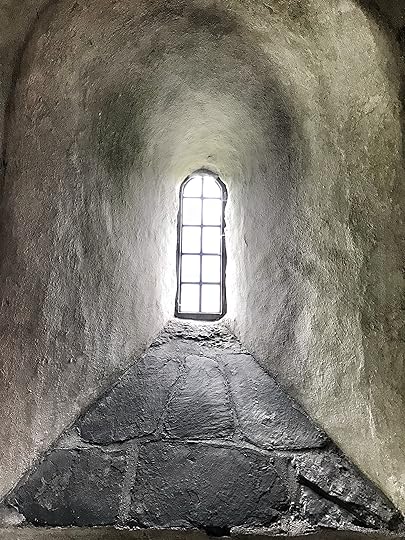
God of the Living
"Now he is God not of the dead, but of the living;
for to him all of them are alive."
—Luke 20.38
When the wall
between the worlds
is too firm,
too close.
When it seems
all solidity
and sharp edges.
When every morning
you wake as if
flattened against it,
its forbidding presence
fairly pressing the breath
from you
all over again.
Then may you be given
a glimpse
of how weak the wall
and how strong what stirs
on the other side,
breathing with you
and blessing you
still,
forever bound to you
but freeing you
into this living,
into this world
so much wider
than you ever knew.
From The Cure for Sorrow

About Jan Richardson
Jan Richardson is an artist, writer, and ordained minister in the United Methodist Church. She serves as director of The Wellspring Studio, LLC, and has traveled widely as a retreat leader and conference speaker. Known for her distinctive intertwining of word and image, Jan's work has attracted an international audience drawn to the welcoming and imaginative spaces that she creates in her books, blogs, and events. Her books include The Cure for Sorrow, Night Visions, In the Sanctuary of Women, and Circle of Grace. Her new book, Sparrow: A Book of Life and Death and Life, will be released this spring.
A native Floridian several generations over, Jan makes her home in Central Florida. For more about her writing and artwork, visit JanRichardson.com, where you can also find links to order her books.

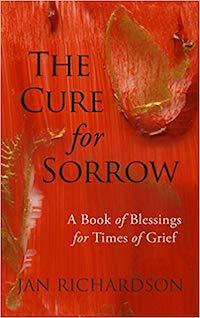
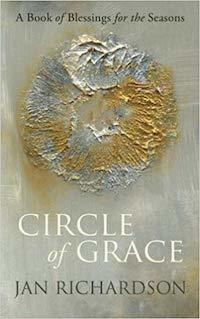
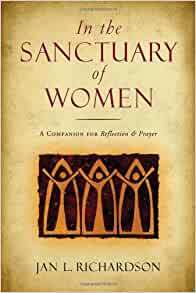
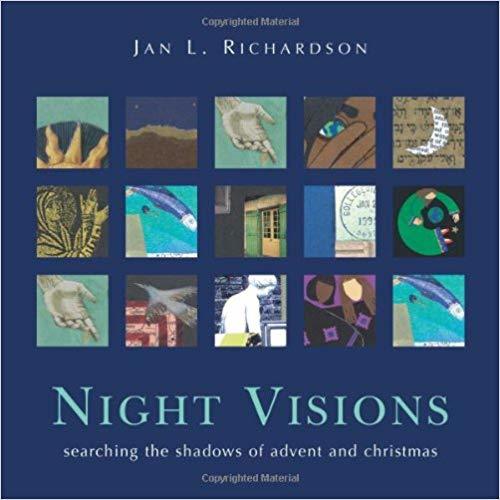

Dreaming of Stones
Christine Valters Paintner's new collection of poems Dreaming of Stones has been published by Paraclete Press.
The poems in Dreaming of Stones are about what endures: hope and desire, changing seasons, wild places, love, and the wisdom of mystics. Inspired by the poet's time living in Ireland these readings invite you into deeper ways of seeing the world. They have an incantational quality. Drawing on her commitment as a Benedictine oblate, the poems arise out of a practice of sitting in silence and lectio divina, in which life becomes the holy text.
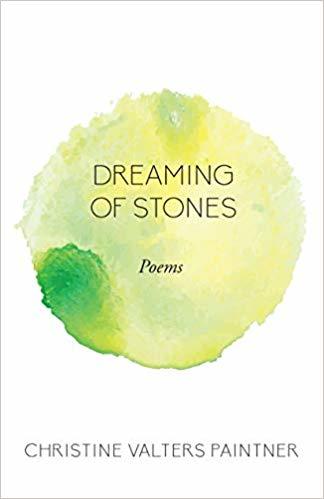
February 29, 2020
Monk in the World: Sabbath 1 – Reflection by Christine ~ A Love Note from Your Online Abbess
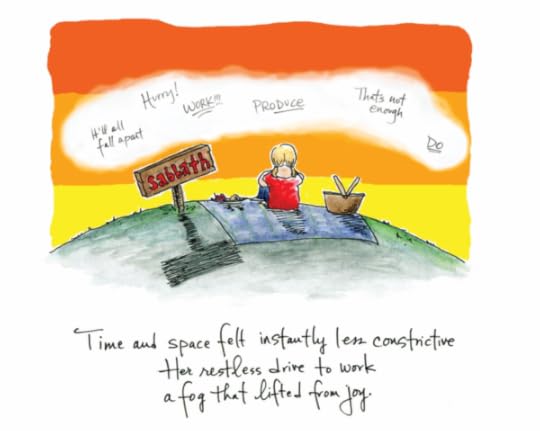 Dearest monks, artists, and pilgrims,
Dearest monks, artists, and pilgrims,
During this Jubilee year of sabbatical we are revisiting our Monk Manifesto by moving slowly through the Monk in the World retreat materials together every Sunday. Each week will offer new reflections on the theme and every six weeks will introduce a new principle.
Principle 6: I commit to rhythms of rest and renewal through the regular practice of Sabbath and resist a culture of busyness that measures my worth by what I do.
"The meaning of the Sabbath is to celebrate time rather than space. Six days a week we live under the tyranny of things of space; on the Sabbath we try to become attuned to holiness in time. It is a day on which we are called upon to share in what is eternal in time, to turn from the results of creation to the mystery of creation; from the world of creation to the creation of the world."
—Abraham Joshua Heschel, The Sabbath
The work of the monk is important, but equally important are rhythms of rest and restoration. Benedict's Rule is exquisitely balanced. In a world which runs nonstop where we are always accessible, we have to make the choice to step out from under its tyranny of demands. Sabbath calls us to restore ourselves and remember that the world will go on without our labors. It is ultimately an act of humility which means to remember our earthiness. Sabbath gives honor to our gifts by also acknowledging our limitations.
Connected to the seasons of each day's rise and fall, we are called to embrace times of fallowness, of doing nothing, of simply being. Sabbath offers us this gift and helps to cultivate a contemplative commitment in the world.
With great and growing love,
Christine
Christine Valters Paintner, PhD, REACE
Art © Kristin Noelle
A Different Kind of Fast Part II: Embrace Vulnerability
 * This is the second part of a seven-part series we will publish weekly during this Lenten season.
* This is the second part of a seven-part series we will publish weekly during this Lenten season.
In 2003 my mother became seriously ill quite suddenly and died a few days later in the ICU. I was only 33 at the time, she was my second parent to die and I had no siblings. I was left with a profound aloneness, even with my beloved husband's faithful companionship. I coped at first in the way that had always served me well. By being strong and holding everything together, keeping busy when I could so that I could distract myself from the tremendous grief.
Western culture rewards us greatly for being able to pull ourselves together and carry on with life. Speed, productivity, and a denial of difficult emotions are the hallmark of our times. In our rush to get things done we armor ourselves even more.
The problem was that I became ill. It was a number of vague things like fatigue, headaches, depression, skin rashes. During this time I discovered a practice called yin yoga in which seated or lying postures are held for 3-5 minutes with the aim of softening the connective tissues. I grew to love this time of sitting with my body and paying attention to the places of holding, of physical armoring, of tightness and tension. Breathing into these places with loving attention brought a great softening to my body. And in the midst of that softening other things began to loosen their grip – the self-critical thoughts which plagued me, my heart opened to the river of mourning and demanded my attention. Tears arose without bidding and I learned to welcome them in.
I also had a wonderful spiritual director to help guide me through this territory of savage grief. I took long contemplative walks and let the turning of the seasons become a scripture text for me which spoke of the necessity of autumn's release and winter's rest alongside of spring's blossoming and summer's fruitfulness.
In the early Christian desert tradition, tears were considered a gift. Softening was the fruit of committed prayer and practice. Tears were shed over our grief at loss but also at the places in our lives which had become hardened, the ways we had turned away from God.
Penthos are tears of compunction, a puncturing of the hard shell of the heart, which pierces to our core, reminding us of who we most deeply are. This "gift of tears," as they are sometimes referred to, reveals to us the misguided perfectionism, games, and manipulations we struggle to achieve, as well as the stories we tell ourselves. These tears free us from lying and any form of pretense that takes over when we feel anxious.
Orthodox theologian and author John Chryssavgis writes: "Tears and weeping indicate a significant frontier in the way of the desert. They bespeak a promise. In fact, they are the only way into the heart."This frontier is the boundary between our old way of seeing and believing and the wide new expansiveness into which contemplative prayer calls us. Compunction awakens us to all the ways we have been false to our own deepest self and to the profound longing that is kindled when we pay attention to the heart.
A story about Abba Arsenius says that he "had a hollow in his chest channeled out by the tearswhich fell from his eyes all his life while he sat at his manual work.
The "gift of tears" written about by the desert elders also is celebrated several centuries later by Spanish mystic St. Ignatius of Loyola. They are not about finding meaning in our pain and suffering. They do not give answers but instead call us to a deep attentiveness to the longings of our heart. They continue to flow until we drop our masks and self-deception and return to the source of our lives and longing. They are a sign that we have crossed a threshold into a profound sense of humility.
In the New Testament we find Jesus weeping over the death of his friend Lazarus, and over the city of Jerusalem. Certainly his final hours were a profound witness to the call of radical vulnerability as a portal to divine grace.
God is felt in the places of pain and sorrow, in the places of paradox and contradiction. Our tears reveal our deepest joys when we acknowledge that we cannot possess anything, neither the spring blossoming nor our partner in life. We learn to love without holding on. The times my marriage has bloomed even further have often been the times of shared vulnerability, when we allow ourselves to reveal our soft underbellies to one another.
My fast this Lent is taking different forms. I am being reminded again of the seductiveness of strength, of pretending that everything feels fine when I am struggling inside. I remember that the places of the greatest disruptions in my life have also been the occasions of the most profound gifts.
My Lenten discipline is to allow a great softening this season, and in the fertile earth of my heart, to see what begins to sprout there that never had a chance in the hardened soil.
With great and growing love,
Christine
Christine Valters Paintner, PhD, REACE
Photo © Christine Valters Paintner
Discover the Sacredness of Life with the Desert Mothers and Fathers
Christine has written an article on the desert mothers and fathers which is published with US Catholic! An excerpt is below.
The desert mothers and fathers have much to teach Catholics about contemplation and prayer. In the third- to sixth-century desert landscape of Egypt, Syria, Palestine, and Arabia, a powerful movement was happening. Christian monasticism began flowering in response to a call to leave the world behind. Christians withdrew from a society in which the misuse of human relationships, power, and material possessions ran counter to their sense of the sacredness of life.
Their journey into the desert was a movement toward growing intentional awareness of God's presence and recognizing that worldly pleasures bring little long-term satisfaction. Their aim was to experience God in each moment and activity by reducing their needs and committing themselves to the discipline of regular prayer and self-inquiry.
February 25, 2020
Monk in the World: Jennifer Trently
I am delighted to share another beautiful submission to the Monk in the World guest post series from the community. Read on for Jennifer Trently's reflection on finding and extending hospitality in the midst of death.
Having committed myself to be a Monk in the World for the past seven years, I have found that at various times, parts of the manifesto are harder to carry out than others. I like living by the cycle of seasonal liturgical rhythms and for the most part, enjoy a less hurried life. However, as spring began earlier this year and Lent was ending, I found myself being swept into a polar vortex beyond my control. All of my plans of decompressing from my thesis, journeying through Holy Week and practicing Resurrection turned upside down.
In the Monk Manifesto, the second commitment reads: "I commit to radical acts of hospitality by welcoming the stranger both without and within. I recognize that when I make space inside my heart for the unclaimed parts of myself, I cultivate compassion and the ability to accept those places in others." There is nothing like death to challenge your abilities to offer hospitality and stretch the limits of your compassion.
Receiving a middle of the night phone call that my mother-in-law had died thwarted my husband and me into full-throttled travel mode. We spent time cancelling and re-arranging appointments. Then we had to make travel arrangements, find a cat sitter, and pack etc. etc. Even all of those well-laid out plans spoiled when the airlines cancelled our flight due to weather, and we had to drive through the night to PA to make it in time for the funeral. Driving and stopping to switch drivers, depleted my energy, limiting my ability even to be patient, let alone extend compassion.
Soon after an extremely short rest, my being felt thrust into swirling emotions and swarming people overrode my circuitry. I could barely extend hospitality to the stranger within my own soul. I called a friend and walked under an umbrella in the rain. Sadness bubbled up as the house seemed too quiet without all of the TVs blaring and as the cupboards stood empty, I thought of how this ended an era, my visits to 11 Marion Circle the place where I first met my husband's family would be no more. Radical acts of hospitality did come from friends and extended family who brought food and listened to us talk about Evelyn.
However, for the other within the part of myself, I did not recognize and could barely muster the energy to extend any kindness to, radical acts of hospitality came from those who had gone before. The moment I seated myself down in the pew, and the funeral liturgy began, I found myself enveloped by the communion of saints, both those venerated by the church and those who had been gone before in humble, devout service without recognition. Solace came from the recitation of the Divine Liturgy of St. John of Chrysostom, a liturgy in continuous use since the sixth century. As I took in the Stained-glass windows and meditated on the icons, when my heart became too full to concentrate on the liturgy, the Saints took over. The ritual, tradition and experience of those who went before me sustained me. The words, the prayers, the chants and the sacrament combined to fill my senses and give my spirit language for the unspeakable. I felt united with those who worshipped in this spot over the past 150 years. I thought about what my in-law's wedding was like, my husband's christening and the funeral for my father-in-law all held in that same church. Later as I lit candles for my mother-in-law, for all of our family and several others, I absorbed the light knowing that the Light, the place of God within me did not ever disappear.
The Light, the place of God, upheld me in the waiting and the wondering of what was to come. Finally, we arrived at the cemetery, the same cemetery where her parents and grandparents occupied graves. We went into the chapel again to hear the liturgy of old recited and then stood in front of the casket as the priest recited those infamous words, "…from dust you came and to dust you shall return."
In this combination of the ancient and the modern, my heart created space and claimed the confused, frustrated, grieving and lost parts of myself. In receiving this gift, I found the ability to care for the others around me and to allow myself to rest knowing that all of us were apart of a larger community, an ongoing continuous community made up of past and present, of living and dead, of the known and unknown.
 Jennifer Trently recently received an MA in Christian Spirituality from Oblate School of Theology, is a spiritual director and a contemplative artist. She blogs at livingintomycalling.blogspot.com or visit her website, www.JenniferTrently.org. Jennifer makes her home in Jackson, TN with her husband and two cats, Saya Ming and Macademina.
Jennifer Trently recently received an MA in Christian Spirituality from Oblate School of Theology, is a spiritual director and a contemplative artist. She blogs at livingintomycalling.blogspot.com or visit her website, www.JenniferTrently.org. Jennifer makes her home in Jackson, TN with her husband and two cats, Saya Ming and Macademina.
February 22, 2020
Monk in the World: Work 6 – Reflection Questions and Closing Blessing ~ A Love Note from Your Online Abbess
 Dearest monks, artists, and pilgrims,
Dearest monks, artists, and pilgrims,
During this Jubilee year of sabbatical we are revisiting our Monk Manifesto by moving slowly through the Monk in the World retreat materials together every Sunday. Each week will offer new reflections on the theme and every six weeks will introduce a new principle.
Principle 5: I commit to bringing myself fully present to the work I do, whether paid or unpaid, holding a heart of gratitude for the ability to express my gifts in the world in meaningful ways.
This week we offer you questions for reflection on the principle of being fully present to your work.
What is the love that calls you to your labors in the world?
Do you need to maintain a job to earn a living?
Does this work support your ability to also create and rest and dream?
How might you bring more love and delight to all of the tasks you are called to?
Closing Blessing from Christine
God who labors through us,
we bring our full presence to work
and enter into an act of co-creation with you.
Support me in the endeavor to do everything with love,
remembering that each small act of compassion
is woven together into a great tapestry of kindness.
Bless my hands as I offer my gifts
in service to your unfolding grace.
With great and growing love,
Christine
Christine Valters Paintner, PhD, REACE
Photo © Christine Valters Paintner
A Different Kind of Fast: A Seven-Part Series for Lent
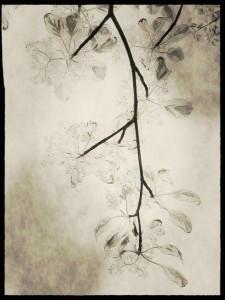 This week we enter the long desert of the Lenten season. If you participate in a liturgical service, most likely you will be marked with the sign of ashes and the words "from dust you came and to dust you shall return" will echo through the sanctuary space again and again.
This week we enter the long desert of the Lenten season. If you participate in a liturgical service, most likely you will be marked with the sign of ashes and the words "from dust you came and to dust you shall return" will echo through the sanctuary space again and again.
St. Benedict writes in his Rule to "keep death daily before your eyes" and Amma Sarah, one of the desert mothers said, "I put my foot out to ascend the ladder, and I place death before my eyes before going up it."
The word for desert in Greek is eremos and literally means "abandonment" and is the term from which we derive the word "hermit." The desert was a place of coming face to face with loneliness and death. Your very existence is threatened in the desert. You can only face up to yourself and to your temptations in life which distract you from a wide-hearted focus on the presence of the sacred in the world.
Death of any kind is rarely a welcome experience. Even when we witness the mysteries of nature year after year reveal the glories of springtime which emerge from winter's fallow landscape. We resist death, we try to numb ourselves from life's inevitable stripping away of our "secure" frameworks. We spend so much energy and money on staying young. But when we turn to face death wide-eyed and fully present, when we feel the fullness of the grief it brings, we also slowly begin to discover the new life awaiting us.
In the desert tradition, death is a friend and companion along the journey. St Francis of Assisi referred to death as "sister" in his famous poem Canticle of Creation. Rather than a presence only at the end of our lives, death can become a companion along each step, heightening our awareness of life's beauty and calling us toward living more fully. Living with Sister Death calls us to greater freedom and responsibility.
Alan Jones describes the desert relationship to death in this way: "Facing death gives our loving force, clarity, and focus. . . even our despair is to be given up and seen as the ego-grasping device that it really is. Despair about ourselves and our world is, perhaps, the ego's last and, therefore, greatest attachment."
I have been sitting with Jones' words and the invitation to fast during Lent, one of the central practices we are called to take on. The first reading for Ash Wednesday is from the prophet Joel summons us to "return to God with your whole heart, with fasting, and weeping, and mourning."
The kind of fast drawing me this season isn't leaving behind of treats like chocolate or other pleasures. This season I am being invited to fast from things like "ego-grasping" and noticing when I so desperately want to be in control, and then yielding myself to a greater wisdom than my own.
I am called to fast from being strong and always trying to hold it all together, and instead embrace the profound grace that comes through my vulnerability and tenderness, to allow a great softening this season.
I am called to fast from anxiety and the endless torrent of thoughts which rise up in my mind to paralyze me with fear of the future, and enter into the radical trust in the abundance at the heart of things, rather than scarcity.
I am called to fast from speed and rushing through my life, causing me to miss the grace shimmering right here in this holy pause.
I am called to fast from multitasking and the destructive energy of inattentiveness to any one thing, so that I get many things done, but none of them well, and none of them nourishing to me. Instead my practice will become a beholding of each thing, each person, each moment.
I am called to fast from endless list-making and too many deadlines, and enter into the quiet and listen for what is ripening and unfolding, what is ready to be born.
I am called to fast from certainty and trust in the great mystery of things.
And then perhaps, I will arrive at Easter and realize those things from which I have fasted I no longer need to take back on again. I will experience a different kind of rising.
*This is the first of a seven-part series on other ways of fasting for the season of Lent from the Abbey archives.
February 21, 2020
Featured Poet: Julie Cadwallader Staub
Last spring we launched a series with poets whose work we love and want to feature and will continue it moving forward.
Our next poet is Julie Cadwallader Staub whose recent work is centered on the intersection of human experience, nature, the marginalized, and sorrow in the world. Read her poetry and discover more about the connections she makes between poetry and the sacred. "Lister to her read "Trees" below.
https://abbeyofthearts.com/wp-content/uploads/2020/02/JCS-recording-of-Trees1.m4a
Jesus Buys a House in South Burlington, VT
I live in a lovely
neighborhood or at least it
used to be, before he
moved in next door.
Now there's a stream of raggy people on bikes,
in cars, most trudging up the street on foot to
his raised ranch.
Those old unkempt men who live under
the bridges and back in the woods.
Those women, streetwalker-types, and
old ones with walkers or canes.
Children too, and migrants, immigrants,
illegals, college kids all the riffraff plus a
few decent people some fancy cars
mixed in.
And he feeds them.
Has an old Weber
grill set up in the front
yard.
I called the police and saw them pull up— I
thought they would shut down the
operation— but apparently he's not
breaking any laws not even disturbing the
peace and today the paper reported that the
officers resigned from their positions and
moved in with him.
And it's true—I've seen them working
side by side with the others serving
food cleaning up weeding that big
garden in the front yard.
The article didn't include what Jesus said, though, that made
those officers leave good jobs to stay with him. What does
he say that makes all those people want to be near him?
Every night he builds a bonfire out front. Stands there
in the light with everyone gathered around him and I
have to tell you—
I don't know why I'm doing this, I'm not the kind of person
who does this kind of thing— but here I am, standing in my
bedroom next to my open window to listen.
Themes of Her Work
My poetry has focused on the intersection of nature, human experience and the sacred. Though that is still the case, my poetry is moving more in the direction of sorrow in the world. In these times of enormous challenge, I am drawn more than ever to the life and example of Jesus, and the lives of those who are marginalized and beaten down by capitalism, patriarchy, racism, and misogyny, including our precious planet and the infinite number of living beings (including us) who are utterly and completely dependent upon it.
Turning
There comes a time in every fall
before the leaves begin to turn when
blackbirds group and flock and gather
choosing a tree, a branch, together to
click and call and chorus and clamor
announcing the season has come for
travel.
Then comes a time when all those
birds without a sound or backward
glance pour from every branch
and limb into the air, as if on a
whim but it's a dynamic,
choreographed mass a swoop, a
swerve, a mystery, a dance
and now the tree stands breathless,
amazed at how it was chosen, how it
was changed.
Poetry and the Sacred
I'm walking downtown and see a man pushing a poodle in a stroller. Why would a man be pushing a poodle in a stroller? Is my life more like the poodle's, being pushed in directions that I haven't chosen, or more like the man's? I love the ways God surprises me in everyday life and poses these questions.
I'm walking my dog and hear a house finch singing its spring song, though it's January. Where is God in this climate crisis? God's creation is sacred, and creation manifests the sacred in an infinite number of ways. Surely this is the most precious thing, the pearl of great price, and yet--we are destroying it. What does this little bird teach me? That we should keep singing as the planet is burning? That there is joy everywhere, even—or especially—in the midst of crisis?
Poems are everywhere, a manifestation of God in our world, of the sacred among us. Alertness to poetry is alertness to the presence of God for me; then writing the poem is an intense process of listening; then editing (and editing, and editing) the poem deepens that process further. It's a profound experience, the best that I've found yet.
Shine
After the first bus comes and
picks up a dozen passengers, I'm alone
at the bus stop
when an older man approaches me drooling,
dressed in a bright yellow crossing guard vest his
clothes stained, hanging loose from his frame
says Do you have a dollar to
spare Yes, I certainly do, I say
and reach into my bag
...such watery blue eyes he has and
what makes a person drool like that...
Do you believe in God he asks as
I glance down to my wallet to
avoid the ten or the five I say, yes,
I certainly do
and when I look at him again he has
straightened up, and there, beside
Shelburne Road and its four lanes of
traffic in rush hour frenzy,
He makes a sweeping sign of the
cross as high as he can reach as
wide as he can stretch
and says, looking at
me God bless you
and Jesus too.

About Julie Cadwallader Staub
Julie Cadwallader Staub was born in Minneapolis MN. She grew up with her five sisters beside one of Minnesota's lakes. Her favorite words to hear growing up were, "Now you girls go outside and play." She graduated from Earlham College, a Quaker college in Richmond, Indiana with a degree in Religious Studies, earned a Masters in Social Work from Rutgers University, and has made her career in social justice work, especially for women and children. She found her way home to Vermont in 1992, and has lived near Burlington ever since.
Her poems have been published in Hunger Mountain Review, Potomac Review, Spiritus, ARTS, Comstock Review, and the Connecticut River Review among others; featured on The Writer's Almanac, and included in several anthologies, notably Poetry of Presence: An Anthology of Mindfulness Poems, and Roads Taken: Contemporary Vermont Poetry.
She was awarded a Vermont Council on the Arts grant for poetry in 2001. Her poem Milk won Hunger Mountain Review's 2015 Ruth Stone Poetry Prize, and her poem Turning has been nominated for a 2020 Pushcart Prize. Milk, Turning and sixty other poems are included in her new collection, Wing Over Wing, published in 2019 by Paraclete Press. The first collection of her poems, Face to Face, was published by Cascadia Publishing House in 2010.
You can read her poems and order her books at her website at JulieCSPoetry.com.
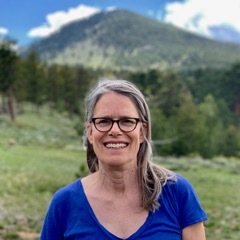
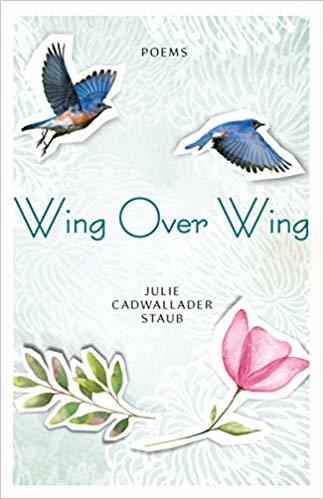
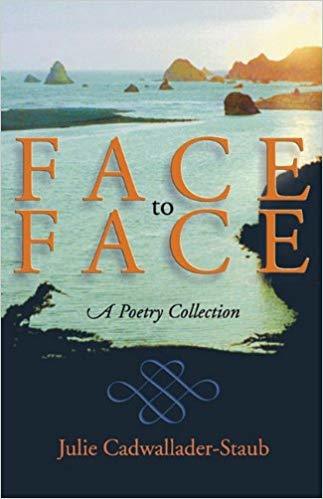
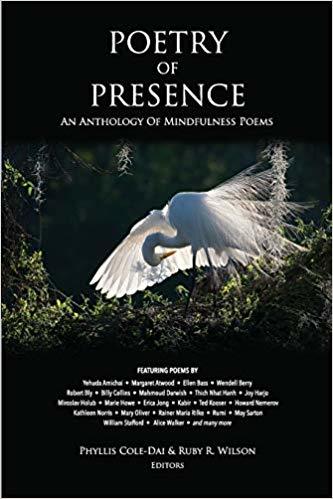
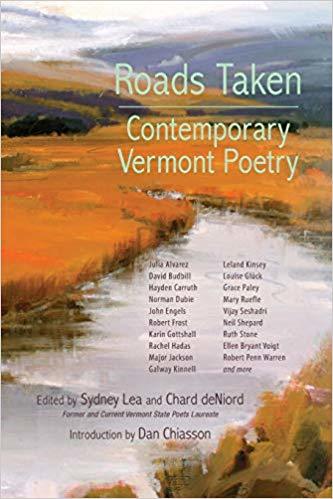

Dreaming of Stones
Christine Valters Paintner's new collection of poems Dreaming of Stones has been published by Paraclete Press.
The poems in Dreaming of Stones are about what endures: hope and desire, changing seasons, wild places, love, and the wisdom of mystics. Inspired by the poet's time living in Ireland these readings invite you into deeper ways of seeing the world. They have an incantational quality. Drawing on her commitment as a Benedictine oblate, the poems arise out of a practice of sitting in silence and lectio divina, in which life becomes the holy text.

February 15, 2020
Monk in the World: Work 5 – Suggestions for Practice ~ A Love Note from Your Online Abbess
 Dearest monks, artists, and pilgrims,
Dearest monks, artists, and pilgrims,
During this Jubilee year of sabbatical we are revisiting our Monk Manifesto by moving slowly through the Monk in the World retreat materials together every Sunday. Each week will offer new reflections on the theme and every six weeks will introduce a new principle.
Principle 5: I commit to bringing myself fully present to the work I do, whether paid or unpaid, holding a heart of gratitude for the ability to express my gifts in the world in meaningful ways.
Consider the ways you might bring more presence to the work you do. Arise each morning and take time for gratitude for the chance to do work which supports you. Make time to listen for the sacred whispers of the holy in moments of silence summoning you to offer your gifts. Create spaciousness so that you can hear the invitation being extended to your heart.
With great and growing love,
Christine
Christine Valters Paintner, PhD, REACE
Photo © Christine Valters Paintner



